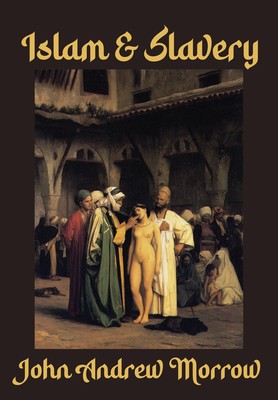
- We will send in 10–14 business days.
- Author: John Andrew Morrow
- Publisher: Academica Press
- ISBN-10: 1680536370
- ISBN-13: 9781680536379
- Format: 15.2 x 22.9 x 1.9 cm, kieti viršeliai
- Language: English
- SAVE -10% with code: EXTRA
Reviews
Description
Some scholars of Islam have argued that slavery and concubinage are permissible according to the Qur'an and the teachings and practice of the Prophet Muhammad. When faced with dissenting views on the disputed subject of the legitimacy of slavery in Islam, they often respond with a loaded question and a theological trap: "Did the Prophet Muhammad commit a grave moral wrong?" Others advance moral relativism. Georgetown University's Jonathan Brown, for example, controversially maintained that "slavery is wrong," but added the disclaimer that "as a Muslim myself, I cannot condemn it as grossly, intrinsically immoral across space and time. To do so would be to condemn the Qur'an, the Prophet Muhammad and God's law as morally compromised." As Dr. John Andrew Morrow makes clear in Islam & Slavery, there is not a single verse in the Qur'an that commands slavery. Slavery is neither an article of faith nor is it a religious obligation. In fact, the Qur'an encourages and even requires Muslims to emancipate enslaved people. As far as the exponents of Islam's spiritual, moral, ethical, and egalitarian tradition are concerned, the Qur'an, the Prophet, and Islam introduced a system that would reform the practice of slavery and abolish it entirely and forever. As God asks in the Qur'an: "What will make you know what the steep path is? It is the freeing of a slave."
EXTRA 10 % discount with code: EXTRA
The promotion ends in 22d.17:44:16
The discount code is valid when purchasing from 10 €. Discounts do not stack.
- Author: John Andrew Morrow
- Publisher: Academica Press
- ISBN-10: 1680536370
- ISBN-13: 9781680536379
- Format: 15.2 x 22.9 x 1.9 cm, kieti viršeliai
- Language: English English
Some scholars of Islam have argued that slavery and concubinage are permissible according to the Qur'an and the teachings and practice of the Prophet Muhammad. When faced with dissenting views on the disputed subject of the legitimacy of slavery in Islam, they often respond with a loaded question and a theological trap: "Did the Prophet Muhammad commit a grave moral wrong?" Others advance moral relativism. Georgetown University's Jonathan Brown, for example, controversially maintained that "slavery is wrong," but added the disclaimer that "as a Muslim myself, I cannot condemn it as grossly, intrinsically immoral across space and time. To do so would be to condemn the Qur'an, the Prophet Muhammad and God's law as morally compromised." As Dr. John Andrew Morrow makes clear in Islam & Slavery, there is not a single verse in the Qur'an that commands slavery. Slavery is neither an article of faith nor is it a religious obligation. In fact, the Qur'an encourages and even requires Muslims to emancipate enslaved people. As far as the exponents of Islam's spiritual, moral, ethical, and egalitarian tradition are concerned, the Qur'an, the Prophet, and Islam introduced a system that would reform the practice of slavery and abolish it entirely and forever. As God asks in the Qur'an: "What will make you know what the steep path is? It is the freeing of a slave."


Reviews